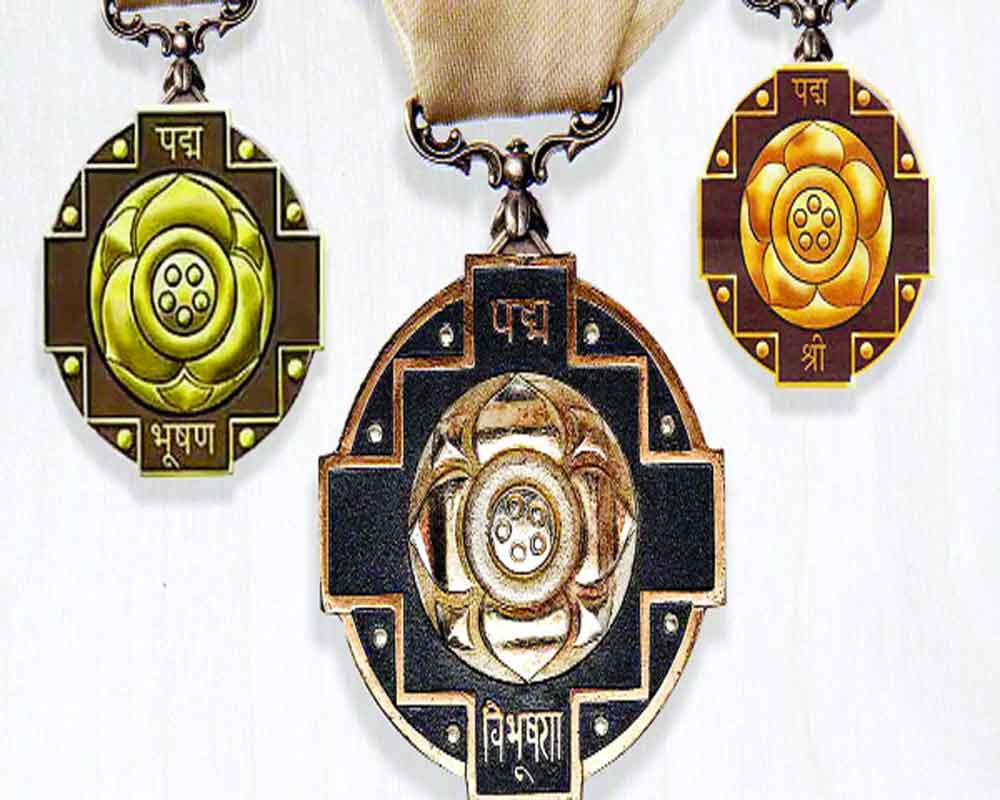Among the latest Padma Shri awardees, 34 were ordinary citizens, including tribals and those working for tribal welfare
The Padma Awards, the prestigious civilian honours in India, are announced annually on the eve of Republic Day. These awards aim to acknowledge achievements across various fields where a component of public service is evident. The history of the Padma Awards dates back to 1954 when the Government of India established two civilian awards—Bharat Ratna and Padma Vibhushan. The latter initially had three classes: Pahela Varg, Dusra Varg, and Tisra Varg. They were later renamed Padma Vibhushan, Padma Bhushan, and Padma Shri through a Presidential Notification issued on January 8, 1955.
Even though the Padma award has been bestowed on various celebrated people since 1954, it was only from 2014 onwards that it started focusing on the common man. Till then, it was a distant dream for a commoner to aim for the award. Even when we recognise a scientist working in the lab for their note-worthy contributions, we often forget the thousands of real 'scientists' who work on the field utilising the knowledge they gathered through the ages from their forefathers. There are great farmers who are developing new plant varieties and cultivation packages. There are great tribal healers who can cure diseases even without the least knowledge of modern science. There are great conservation biologists who know how to conserve nature without any understanding of ecology. There are excellent climatologists who can predict weather simply by looking at the changes happening in nature. There are exemplary people working in astronomy, metallurgy, engineering and other fields. These people work selflessly for the benefit of society without realising even the significance of their work for society. Behind every architectural marvellance or artistic work, there is the craftsmanship of our skilled labour force. Unfortunately, people recognise only the finished product, not the hand that made it happen.
There are thousands of such people who live amongst us without seeking any attention. They may not hold a PhD degree or a professional degree, but their knowledge and scientific skills are more than those of a trained scientist.
In the recent list of 110 Padma Shri awardees, it was announced that 34 were such ordinary people, of whom more than one-third are tribals or those who have worked for tribal welfare. The prominent unsung heroes include Parbati Baruah, fondly known as "Hathi ki Pari," a female elephant trainer from Goalparahas, Assam. Defying deep-rooted stereotypes, Baruah has devoted four decades to addressing human-elephant conflicts. Her scientific methodology has supported three state governments in effectively managing and capturing troublesome tuskers, illustrating the effectiveness of challenging conventional norms.
The farming community is doing yeoman service for the nation and humanity. It's appreciable that many farmers found a place on this year's Padma list. Sathyanarayana Beleri, the rice farmer from Kasaragod, conserves 650 traditional rice varieties on his farm without any sophisticated infrastructure, which even ICAR institutions don't do. Other farmers who were recognised include Sarbeswar Basumatary, the tribal farmer from Chirang,Assam; K Chellammal, an Organic farmer from Andaman; Yanung Jamoh Lego from Arunachal Pradesh and Sanjay Anant Patil of Goa. Many people who work in nature conservation, folk arts and craftmanship have also been recognised.
The knowledge these exceptional people garnered was passed down through generations orally and is not documented properly. The knowledge is shared only among the close family members. In most cases, the second generation shifts away from the traditional workforce, moving toward more lucrative urban jobs. In the long run, if there are no takers for this traditional knowledge, it will become extinct, as happened to the Indian Knowledge system. Modi government's initiative to recognise such people is a futuristic vision to preserve the remnants of still-prevailing Indian knowledge. This will revive interest in their community to carry forward the great work their forefathers have been doing. Recognition through a coveted award like Padma Shri will also provide them respect from other members of the society. The government has fostered a sense of self-confidence and admiration for one's work by making the Padma award accessible to the common man.
(The writer is an adjunct faculty at the National Institute of Advanced Studies, Bangalore, views are personal)


























